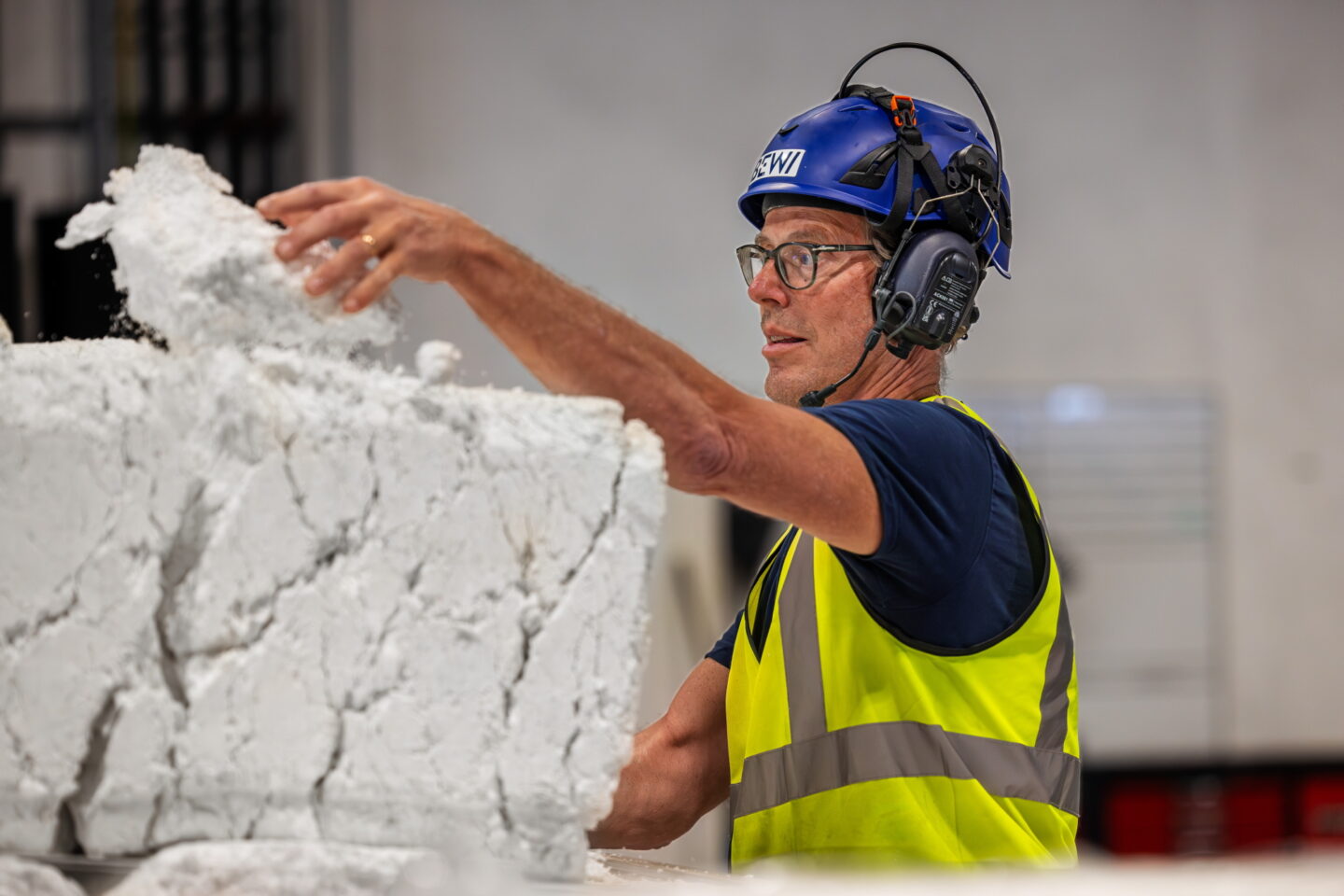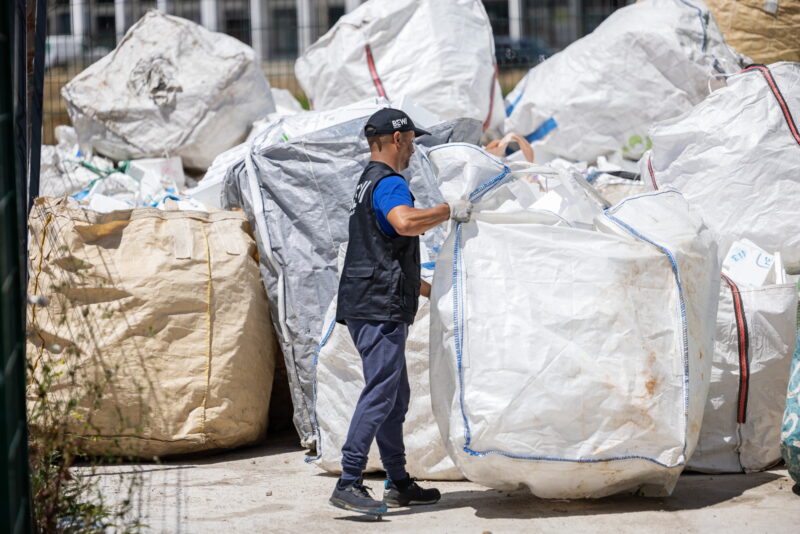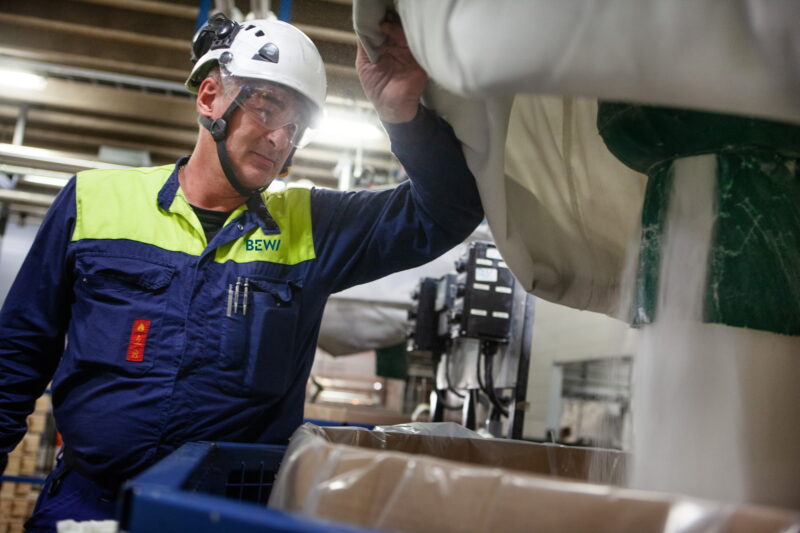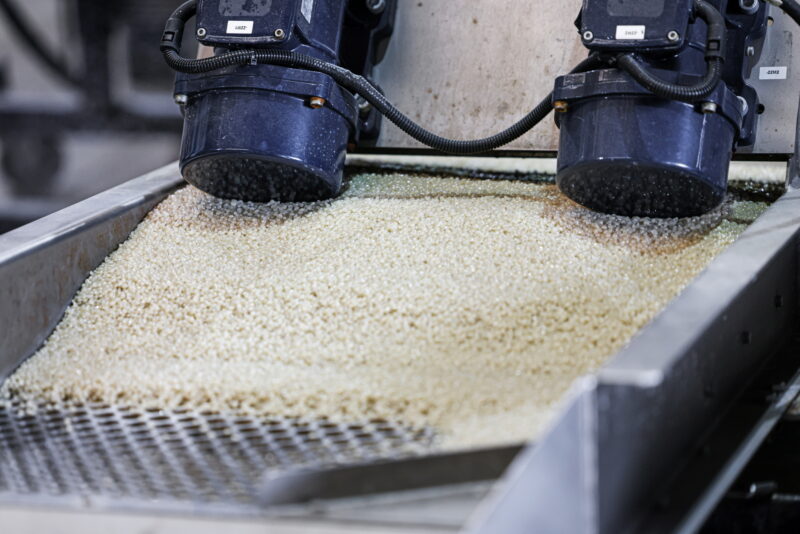BEWI: Used Fish Boxes Recycled into New Raw Material in Porvoo

At BEWI’s Porvoo plant, EPS (expanded polystyrene) beads are manufactured. These are the raw material used to make boxes for transportation of fresh fish. The boxes are produced in Norway, and afterward, they return to Porvoo as pellets to be reborn in a new form. In addition, the EPS beads are used for other food and protective packaging, but approximately 70 per cent of the EPS produced in Europe goes to insulation solutions.
BEWI is the largest integrated producer of EPS in Europe. The group operates 74 production facilities from northern Norway to southern Portugal. Three of these, including the Porvoo plant, are dedicated to raw material production.
In the RAW division in Porvoo, about 70 employees work around the clock to produce EPS beads. These are sold to converters of the EPS, among others BEWI’s own downstream facilities, who then turn the beads into end products.
In 2018, the BEWI launched a recycling business unit called BEWI Circular. Thanks to this, a significant portion of the used EPS is now recovered and recycled. In 2024 alone, 33,000 tonnes of used EPS were collected for recycling, equivalent to more than 50 million fish boxes. Of that, 4,000 tonnes were reused as raw material at the Porvoo plant.
— That amount represents just over 40 percent of the total capacity of our extruder production line here in Porvoo. We’re continuously working to increase the amount of recycled material, says Arto Manninen, Production Director at the Porvoo plant.
Currently, recycled EPS is mostly used for insulation solutions due to food safety. However, recycled feedstock can be allocated into fish boxes through the mass balance approach, making it also suitable for food packaging.

This is how the closed-loop system works
The closed-loop process begins with EPS beads production in Kilpilahti, Porvoo.
The beads are then used for producing fish boxes, for example in facilities in Norway or UK. The boxes are made by expanding the beads with steam into molds. The EPS boxes are lightweight, solid, and keep fish cool even during long-distance transport.
— Typically, the boxes are produced close to fish farms and slaughterers, Manninen explains.
Once filled, the boxes travel to fish processors and markets. After use, they are collected, washed, compacted, and granulated into pellets at recycling plants. BEWI operates such plants in Sweden, Portugal and the Czech Republic.
The pellets then make their way back to Porvoo, where they are turned into new EPS raw material.
— We use an extrusion process that allows us to work with recycled polystyrene, in particular material from used fish boxes. But also, EPS products from the construction industry can be recycled multiple times, Manninen notes.
The share of recycled material in the polystyrene produced in Porvoo ranges from 30 percent to 100 percent.
— We’re capable of producing polystyrene beads entirely from recycled material. If needed, we can fully replace virgin raw materials with recycled.

Responsibility and respect for nature
According to Manninen, EPS and other foam plastics have many superior qualities. They are solid, durable, lightweight, and excellent shock absorbers. Add to that thermal efficiency, moisture resistance, and cost-effectiveness, making them a smart choice for a wide range of applications.
Efficient recycling ensures that plastics do not end up in oceans or nature. Since 2020, the Porvoo plant has participated in the plastics industry’s Operation Clean Sweep program. The goal is to prevent microplastics from entering the marine environment and surrounding ecosystems.
Another example of BEWI’s commitment to responsibility is how it collects and purifies wash water from ships’ cargo tanks at Kilpilahti in collaboration with Neste’s port staff. The extracted styrene is then reused.
BEWI recently announced it is selling a majority stake in its raw material production operations to a Dutch investment company.

